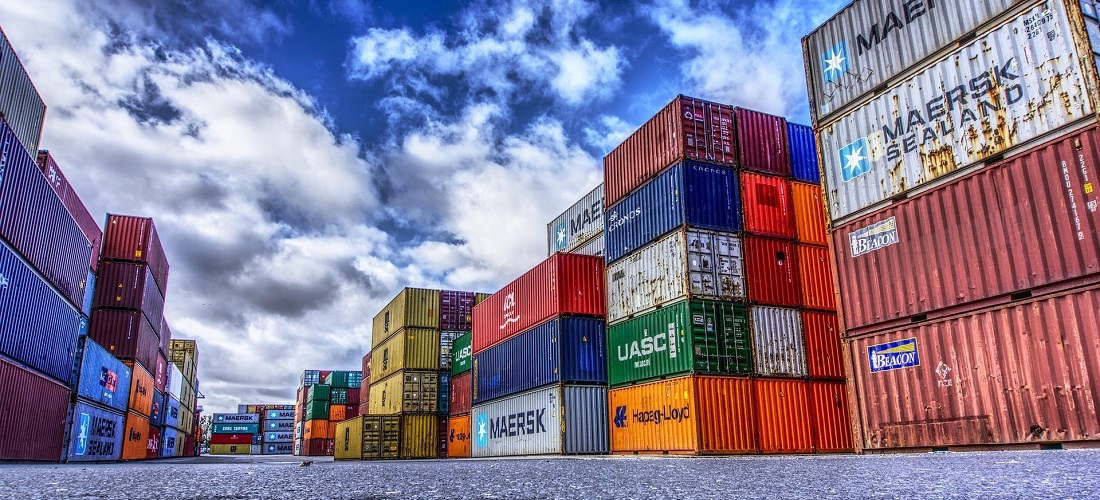
Brazilian trade balance in surplus of US$ 1.856 billion in the fourth week of December
Dec, 29, 2020 Posted by Ruth HollardWeek 202053
The Brazilian trade balance registered a surplus of US$ 1.856 billion and a trade flow of US$ 5.97 billion in the fourth week of December, according to data released on December 28th by the Foreign Trade Secretariat of the Ministry of Economy. Exports reached US$ 3.913 billion and imports reached US$ 2.057 billion.
Exports up until the 4th week of December fell 2.8% compared to December 2019, totaling US$ 15.42 billion. Imports, on the other hand, grew 50.7% and totaled US$ 16.22 billion. This resulted in a deficit of US$ 801 million, a decrease of 115.7%, while the trade flow increased 18.8%, reaching US$ 31.63 billion.
Exports
The decline in exports until the fourth week of December was driven by decreases of 19.1% in Agriculture, which totaled US$ 2.07 billion, and 10.3% in the Extractive Industry, which reached US$ 3.83 billion. The Manufacturing Industry reached US$ 9.45 billion, a growth of 5.4%.
This increase in the Manufacturing Industry was driven by sales of sugars and molasses (+ 116.6%), pig iron, spiegel, sponge iron, granules and powder of iron or steel and ferro-alloys (+ 42.9%) and non-monetary gold, excluding gold ores and concentrates (+ 61.5%).
The main decreases in Agropecuária exports were live animals, not including fish or crustaceans (-34.2%), paddy or raw rice (-99.5%), and soy (-91.0%). The decline in extractive industry exports was mainly due to sales of aluminum ores and concentrates (-47.6%), precious metal ores and concentrates (-45.2%) and crude petroleum oils or bituminous minerals, crude (- 62.8%).
Imports
In imports, up to the fourth week of the month, the increase was driven by the 62.1% growth in the Manufacturing Industry, which reached US$ 15.42 billion, with emphasis on platforms, vessels, and other floating structures (+13,724.1 %), in addition to aircraft and other equipment, including parts (+ 155.4%), and medicines and pharmaceutical products, except veterinary (+ 65.9%).
The Extractive Industry reduced imports by 60.2%, totaling US$ 336 million. The decline was driven by the setbacks of coal, even in powder, but not agglomerated (-46.4%), crude oil or bituminous minerals, raw (-89%), and natural gas, liquefied or not (-28, 9%). However, there was an increase in purchases of unroasted iron pyrites (+ 175.4%), copper ores and concentrates (+ 42.6%), and aluminum ores and concentrates (+ 21.7%) .
The farming sector registered a 3.9% in imports, totaling US$ 349.97 million up to the fourth week of the month, with emphasis on the losses in unground wheat and rye (-47.5%), unground barley ( -74.4%), and vegetables, fresh or chilled (-41.3%). On the other hand, purchases of paddy or raw rice (+ 1,281.2%), raw or roasted cocoa (+ 240,952.6%) and soy (+ 612.6%) contributed to the overall increase in the country’s imports in the period.
-
Economy
Jun, 26, 2024
0
In May, Paraguay conquered nine new markets for exports
-
Other Cargo
Jun, 15, 2022
0
Freight to China boosts regional exports of leather in Latin America
-
Ports and Terminals
Dec, 13, 2023
0
São Paulo legislature shows support for upcoming Santos-Guarujá tunnel
-
Ports and Terminals
Jan, 17, 2023
0
Port of Salvador container terminal achieves record productivity

